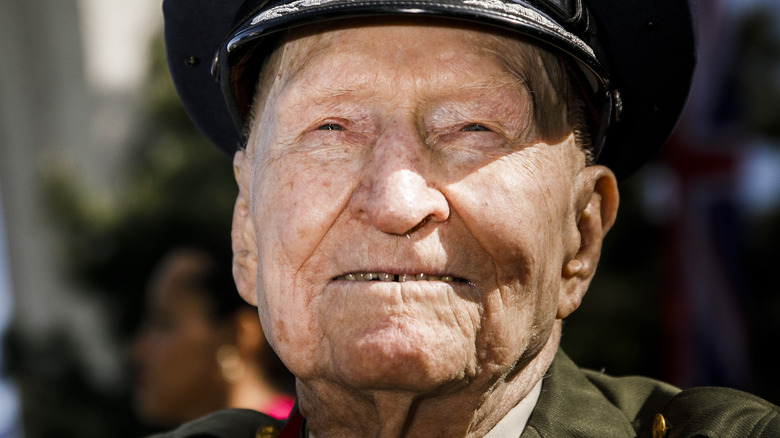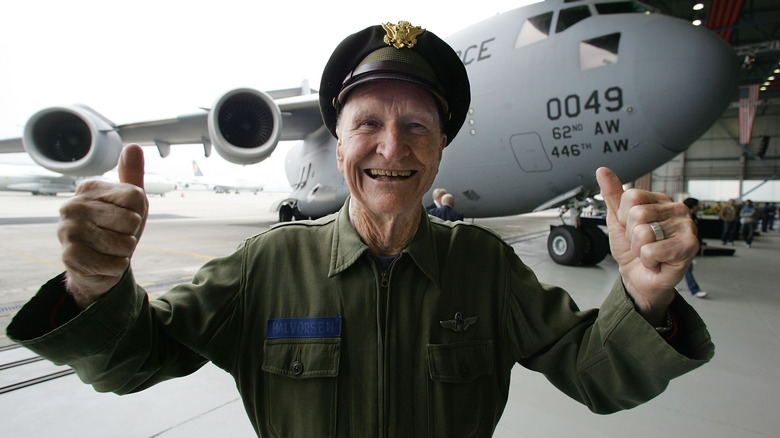WWII's Famous 'Candy Bomber' Has Died
On Wednesday February 16, Gail Halvorsen died at the age of 101, surrounded by family and friends. Halvorsen will be remembered by many as the U.S. military pilot known as the "Candy Bomber," per NPR.
The title was given to him for his flybys over West Berlin in the late 1940s, during which he dropped candy to the children while delivering supplies to the city. At the time, the Soviet Union had the city blockaded in an attempt to drive out the presence of the Allie's in the city's western half. According to a report shared by PBS, the United States "shipped a total of 12 tons of candy and 3600 candy chutes to Lt. Gail Halverson," to aid him in this mission. These flights, which were later dubbed "Operation Little Vittles," along with other supply runs, led to an easing of the blockade.
"Halvorsen's deeply human act has never been forgotten," Franziska Giffey, the mayor of Berlin, said upon news of his death (via Sky News).
Halvorsen wasn't initially keen on the idea
Being a service member during the Second World War, Gail Halvorsen did not immediately love the idea of bringing supplies to the Germans. After all, many of his friends had died fighting these recent enemies.
However, as Halvorsen later recalled, he was walking by the barbed wire fence at Templehof airport one day when he saw a bunch of children. He gave them some gum and they proceeded to revel in the sheer smell of the candy. "I was so moved by what I saw and their incredible restraint," he said, "that I promised them I would drop enough gum for each of them the next day as I came over their heads to land. They would know my plane because I would wiggle the wings as I came over the airport" (via The Candy Bomber).
That same plane wiggle was remembered decades later by Tami Teeters. The Berlin native told Fox 23 after years of cold, bombs, and lack of food, the supplies brought by Halverson with his plane wiggle brought new hope to the children. "The candy, it represented freedom or some kind of normalcy," Teeters said.

